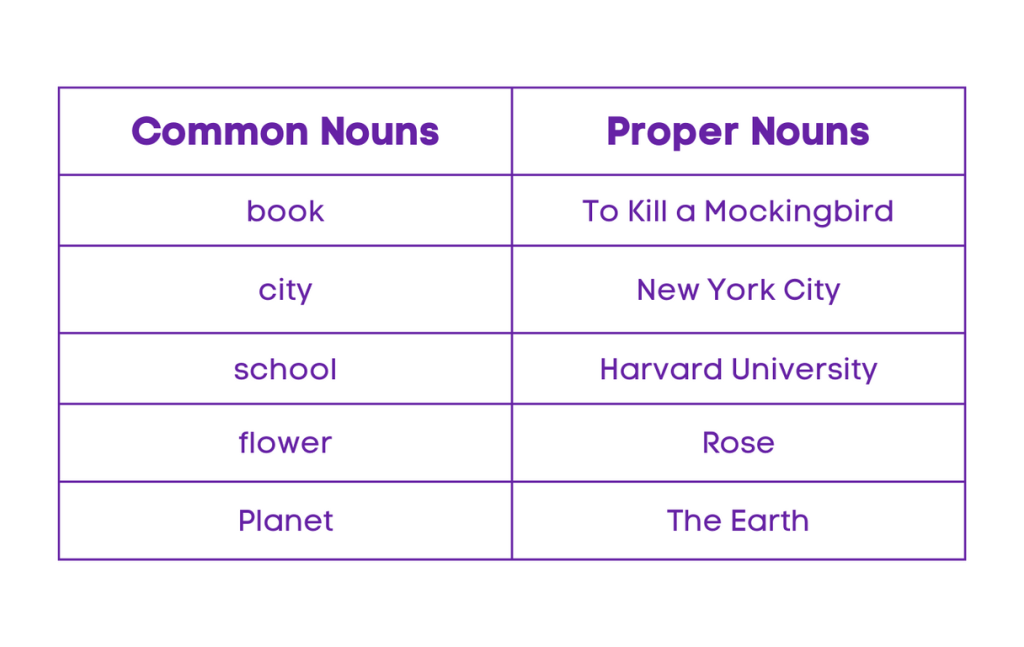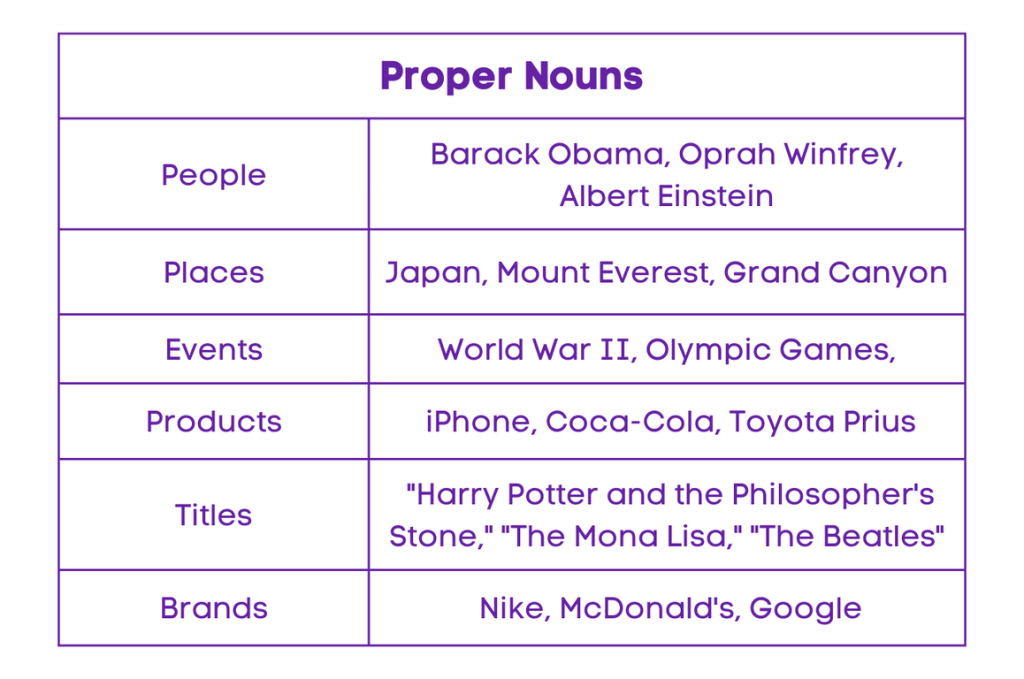What are Proper Nouns? – Meaning and Examples
Table of Contents
Introduction
Proper Nouns
In the realm of grammar and language, proper nouns play a crucial role in identifying specific people, places, and things. Understanding the distinction between common nouns and proper nouns, as well as the capitalization rules associated with proper nouns, is essential for effective communication and writing.
Analogy of Definition
What are Proper Nouns?
A proper noun is a specific name used for an individual person, place, or organization. It is a type of noun and is always capitalized to distinguish it from common nouns, which refer to general items. Proper nouns can include the names of people, cities, countries, companies, and more.
Method
Common Noun vs. Proper Noun
The primary difference between common nouns and proper nouns lies in their specificity. Common nouns are general names for people, places, or things, while proper nouns are specific and unique identifiers. For example, “dog” is a common noun, while “Fido” is a proper noun.

Capitalization Rules for Proper Nouns
Proper nouns are always capitalized, regardless of their position in a sentence. This includes the first letter of the noun and any subsequent letters. For example, “Mary” and “New York” are both proper nouns and should be capitalized accordingly.

Examples
Examples of Proper Nouns
1. Person: John Smith, Taylor Swift, Martin Luther King
2. Place: Eiffel Tower, Sweden, Hogwarts, Brazil
3. Organization: Google Inc., Meta
Quiz
Tips and Tricks
1. Capitalization of Names
Tip: Always capitalize the first letter of a proper noun, regardless of its position in a sentence.
Example: “Mary visited the Eiffel Tower in Paris.”
2. Specificity of Proper Nouns
Tip: Proper nouns are specific names for people, places, or things and should be capitalized to distinguish them from common nouns.
Example: “I live in New York City.”
3. Company Names as Proper Nouns
Tip: When referring to specific companies or organizations, their names are considered proper nouns and should be capitalized.
Example: “I work at Google Inc.”
4. Geographic Locations
Tip: Names of cities, countries, and landmarks are proper nouns and should be capitalized.
Example: “The Great Wall of China is a famous landmark.”
5. Personal Names
Tip: Always capitalize the names of specific individuals, as they are considered proper nouns.
Example: “John Smith is a talented musician.”
Real life application
Story: “The Adventures of Proper Nouns”
In a world where proper nouns reigned supreme, their significance was evident in various real-life scenarios.
Scenario 1: Traveling to Paris
When planning a trip to Paris, it was essential to remember that “Paris” is a proper noun and should be capitalized in all travel documents and communications.
Scenario 2: Company Branding
Companies such as “Apple Inc.” and “Microsoft Corporation” relied on the capitalization of their names as proper nouns to establish brand identity and recognition.
Scenario 3: Historical Landmarks
Visiting historical landmarks like the “Statue of Liberty” and the “Eiffel Tower” highlighted the importance of capitalizing proper nouns to honor and respect these iconic locations.
FAQ's
Like? Share it with your friends
